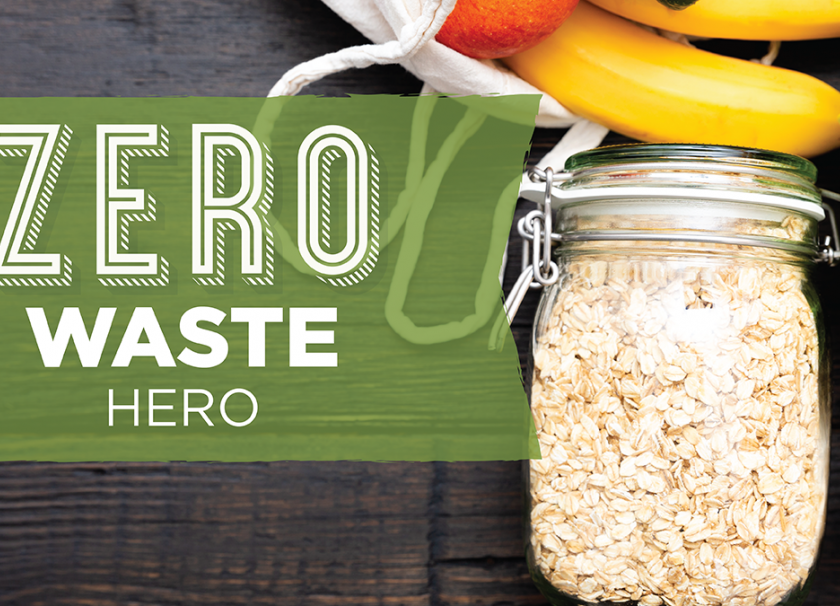
Tips for a Sustainable Kitchen
By Mahlea Rasmussen, Education Coordinator
Outside of work I spend a lot of time in the kitchen. I find it a soothing space to create nourishing meals and lasting memories. I find it essential to be as eco-friendly as possible and a few changes can transform your kitchen into a sustainable center of your home.
The choices begin with shopping for your food. It is important to stay organized so you don’t end up over-shopping or purchasing items you already have. This can lead to food waste - the USDA found that Americans on average each waste a pound of food per day. To avoid this, create a list on a chalkboard or white board and take a photo, so you know just what to purchase.
Don’t shop when your hungry. Although all of us have been there and heard this before, we are much more likely to purchase unnecessary items when our tummies are doing the talking.
Leave your reusable tote bags in the car, so you don’t leave them at home. After unloading your goods, run out to the car one more time and throw your bags in the back seat. That way you won't be caught without them next time you hit the market. Some estimates put the average 'lifespan' of a plastic bag at just 12 minutes.
Shop in the bulk and produce departments to avoid packaging and bring your own containers. The beautiful thing about bulk is that it goes far beyond food items: shampoo, dishwashing detergent, pet food and more are available. Because you can bring your own containers to fill, you're skipping the single-use packaging that many products on the shelf come in.
When shopping for produce, I choose a bag made from recycled plastic bottles available for $0.50 in our produce department. For dry goods, a muslin cloth bag is also available for the same price. For flours and liquids, I bring my own glass jars and bottles.
Shopping for herbs and spices with your own containers is especially advantages as you can save as much as 95% on the goods you buy. Remember: every time you purchase an item in a container, part of the cost is paying for the container itself.
At home some other ways to make your kitchen more sustainable is by growing your own herbs and making your own products. This doesn’t have to be overly time consuming. Herbs, rosemary, oregano and thyme are easy to grow and require minimal time.
Having a stock container in your freezer can significantly reduce your waste and save you money. Most vegetable scraps can be used such as carrot ends, celery and onion. After boiling the stock vegetables you can compost them as long as there is no meat product or oil used.
Replace soft drinks with infused water you make at home. Fill a pitcher with refreshing citrus, mint or cucumber. Not only is this good for your budget, but it's good for your waistline by reducing unnecessary sugar intake.
Another item found commonly in kitchens and easily eliminated is paper towels: it’s easy to sub in some worn out, clean t-shirts and cloth napkins.
And finally, when you're serving dinner, create smaller plates. Those who are hungry can always go back for more, but you will end up throwing out less uneaten food.
The benefits of a zero waste kitchen go beyond the trash compactor. You will find yourself saving money and eating clean. “The zero waste lifestyle is not about complicating your life; it’s about simplifying.” - Bea Johnson.
More Co-op News

Meet our February Change for Good Recipients
This month at AFC we're doing things a bit different! For the entire month of February round up your total at checkout and donate to TWO amazing organizations: Rogue Community Cat Rescue and Rogue Valley Street Dogs.
Rogue Community Cat Rescue is a nonprofit based in Medford, Oregon that aims to advocate for and improve the lives of community cats and kittens through Trap-Neuter-Return (TNR), rescue, foster care, adoption, and education. Recently, RCCR has been able to shift into larger-scale projects including, but not limited to:
The Co-op Community Classroom - Learn from local educators!
Located at 300 N Pioneer St, just behind the Co-op, sits our lovely community classroom. Here, we host delicious cooking classes, free lectures, sustainability classes, health and wellness events, cookie parties, community dinners, board meetings, and more! Owners get discounts!
You can find all events happening in the classroom at ashlandfood.coop/events, or look around the store as you shop for information teasing our upcoming classes.
If you are interested in TEACHING a free or paid class, you can contact education@ashlandfood.coop for more information.
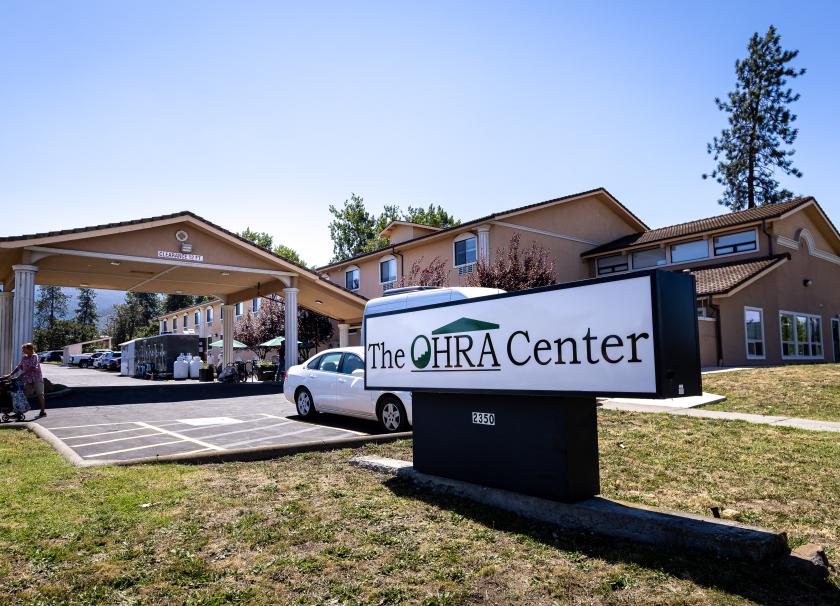
Meet our January Change for Good Recipient
"Moving people from crisis to stability," Opportunities for Housing Resources and Assistance or OHRA is a non profit organization whose mission is to help low-income people build better lives. This is done by offering both hope and access to various social services,
"We encourage those in need on the path to self-sufficiency."
December Change for Good: Jackson County Fuel Committee
If you’ve lived through even one Rogue Valley winter, you know the cold settles in quickly. The frosty mornings, the long dark evenings, the kind of chill that lingers no matter how many layers you put on - winter can be tough. And while many of us can manage with the help of heaters, woodstoves, and warm homes, thousands of families in our community struggle to access the heat they need to stay safe and comfortable. That’s where the Jackson County Fuel Committee (JCFC) comes in!


November Change for Good Recipient
Meet our November Change for Good Recipient: The Siletz Health Clinic
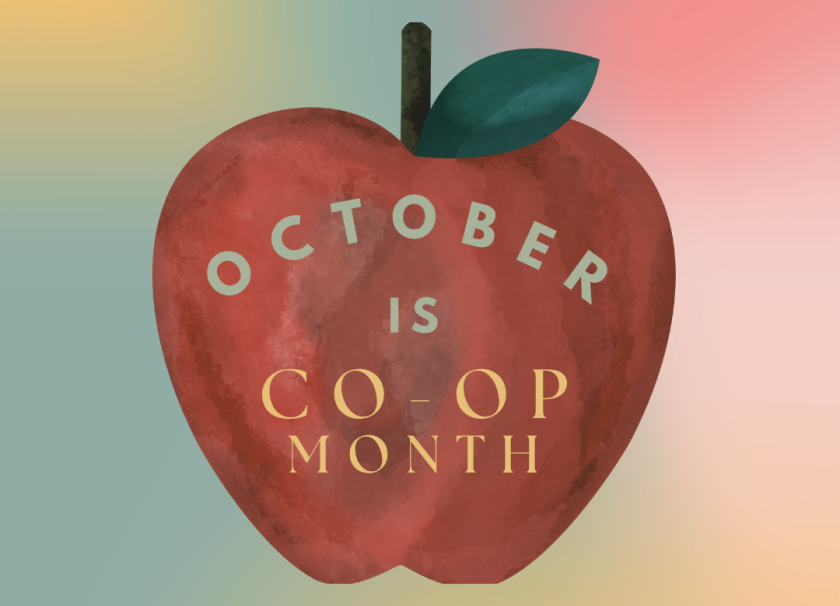
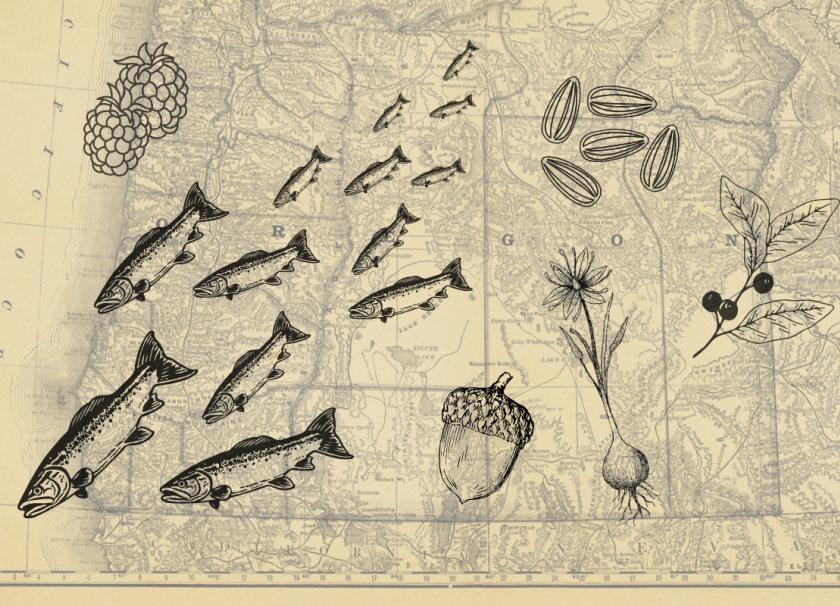
Celebrating Indigenous Food and Traditions
Each October, when so many across the country celebrate Indigenous Peoples' Day, the Ashland Food Co-op pauses to reflect on the land we call home, the people who've cared for it, and how food and connections to the land can help us return that inheritance in a positive way.
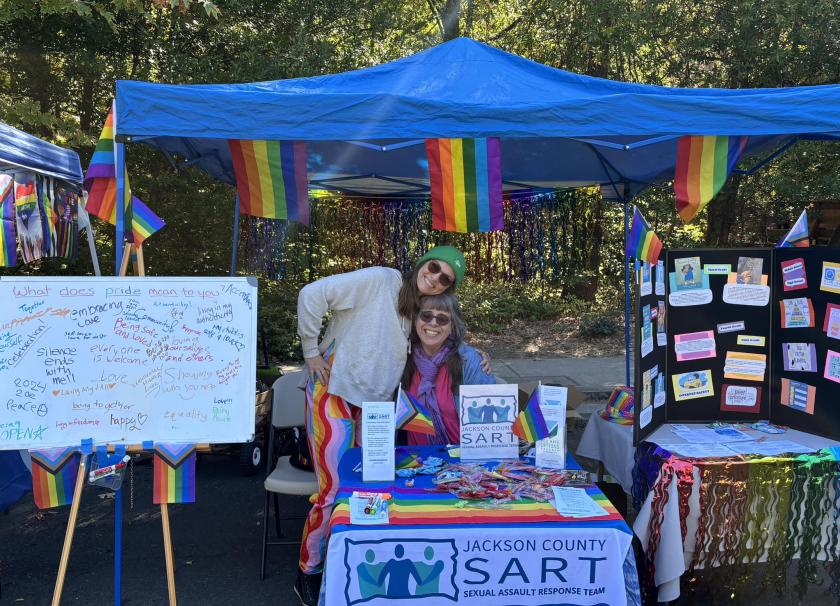
September Change for Good: Siskiyou Field Institute
This month, your Change for Good donations support Siskiyou Field Institute (SFI), an organization that helps people connect with one of the most biodiverse regions in North America: the Klamath-Siskiyou ecoregion.

Meet our August Change for Good Partner - Ashland Schools Foundation
August's Change for Good partner is a perfect fit for this month as our kids head back to school. Ashland Schools Foundation (ASF) is a nonprofit dedicated to supporting quality education in Ashland's public schools. You may have run in the Monster Dash or noticed the "Perk Up for Students" sign at our local coffeeshops - these are just some of the (fun and delicious) ways you are already supporting ASF.

Welcome to the Board!
We are happy to welcome two new Directors, Evan Archerd and Elizabeth Walsh, to the Board! And we're thrilled to have Joanna Wnorowski Pecoraro continuing to serve!
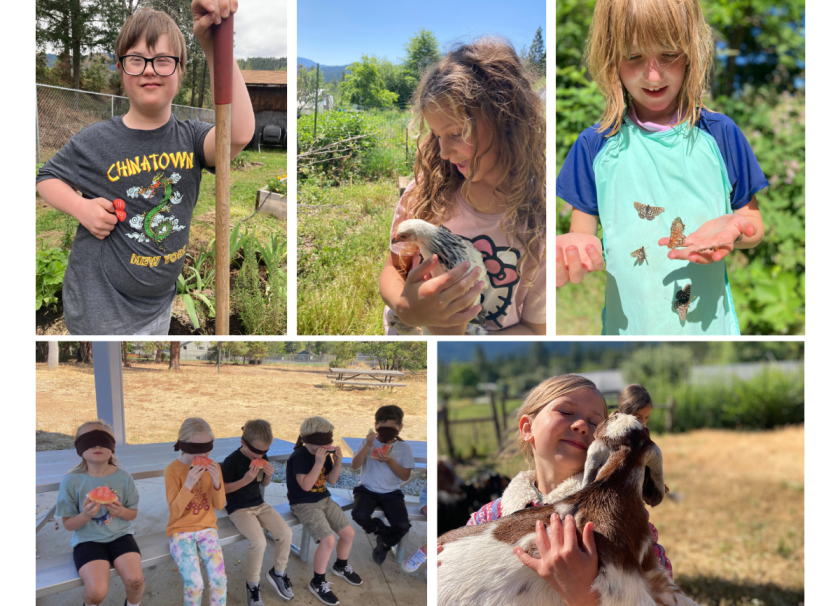
July Change for Good Partner: White Oak Farm
This month, we’re proud to support White Oak Farm, an inspiring organization that blends sustainable farming, environmental education, and community nourishment—right here in Southern Oregon.

Bee the Change: Supporting Pollinators, Art, and Education with Bee Girl
Here at Ashland Food Co-op, we’re buzzing with excitement about our July Change for Good partner: Bee Girl / Bee Regenerative! This local nonprofit is doing some bee-autiful work to protect pollinators, restore habitats, and teach the next generation how to care for the tiny creatures that keep our food systems thriving.
Bee Girl + Bee Regenerative: More Than Just a Name
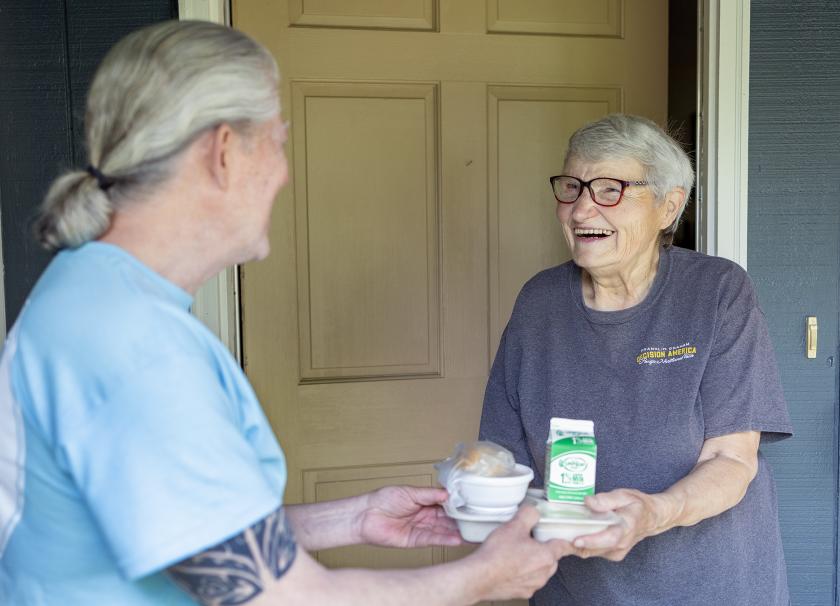
May Change for Good: Food & Friends
Each May, Ashland Food Co-op highlights a local nonprofit doing vital work in our community—and this month, we're proud to feature Food & Friends, the only Meals on Wheels program serving Jackson and Josephine Counties.
